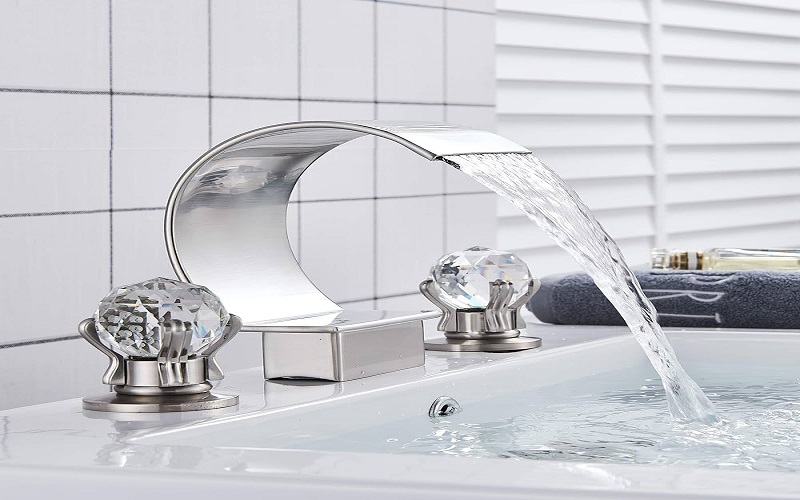
The skin needs the right balance of nutrients to perform its primary function as a barrier that protects the rest of the body from external aggressions. To keep your skin looking, performing and feeling great, take care of it from the inside out.
Healthy fats
Look out for monounsaturated and polyunsaturated fats in nuts, seeds, plants like avocados, and fish.
Omega-3 fatty acids are a type of polyunsaturated fat that the body cannot produce, but is necessary for the construction of cell walls. . It also blocks chemicals that can allow skin cancer to grow and spread and reduces inflammation.

Proteins
The body converts the ingested proteins into building blocks called amino acids and reuses them to make other proteins, such as collagen and keratin, which make up the skin’s structure.
Some amino acids are antioxidants that protect skin cells from UV rays and “free radicals” that are produced when the body breaks down certain foods or when you’re around cigarette smoke. For good and healthy skin you should use friendly skin products like Natureva Skin Care Products.
Vitamin A
Both the top and bottom layers of the skin need vitamin A. Vitamin A appears to prevent sun damage by interrupting the collagen degradation process. Since it’s an antioxidant, it can provide some protection against sunburn (although it’s not as strong as sunscreen). It can also help heal cuts and scrapes if you’re taking steroids to keep it down. Vitamin A deficiency can make your skin dry, itchy and uneven.
Vitamin C
Think of collagen as “C”. This vitamin helps the complex protein network maintain its shape. It is also a powerful antioxidant that protects you from free radicals and reduces the risk of skin cancer. Low levels of vitamin C can cause you to bruise more easily, gums to bleed more easily, and to cause ulcers.
Vitamin E
This antioxidant and anti-inflammatory effect can also absorb the energy of UV rays that can damage the skin, leading to wrinkles, sagging and skin cancer. Works with vitamin C to strengthen cell walls.
Zinc
The outer layer of the skin contains five times more minerals than the lower layer. Zinc helps skin heal after injury. It is necessary to maintain cell wall stability and allow cells to divide and specialise as they grow. Protects the skin from damage. It also works as an antioxidant.
Too little zinc can look like eczema, but an itchy rash won’t get better with moisturisers or steroid creams. Minerals that are deficient in selenium have been linked to an increased risk of skin cancer.
Some foods contain more than one nutrient for your skin, which often helps it function better:
- Dark leafy vegetables (cabbage, spinach, collards): vitamins A, C and E; Omega 3; protein — plus selenium in spinach
- Eggs: proteins, vitamins A and E, selenium, zinc
- Flax seeds: omega-3, selenium
- Legumes (lentils, chickpeas): protein, zinc
- Avocado: healthy fats, vitamins C
Check with your doctor if you’re concerned you’re not getting enough of these key nutrients from your diet to make sure supplements aren’t affecting your health in other ways. Fish oil, for example, is a source of omega-3s, but taking it may not be a good idea if you are on blood thinners or have a weakened immune system. And zinc supplements can reduce the effectiveness of some antibiotics. Use good and friendly skin products for your skin to feel Alive. Natureva Skin products are designed as per your skin requirements and makes you and your skin feel good.
Best Foods For Healthy, Glowing Skin For All Ages
We can’t stop the natural ageing process, but our lifestyles play an important role in maintaining healthy, glowing skin. . Avoiding excessive sun exposure, wearing sunscreen, drinking less alcohol and quitting smoking are the most important steps in protecting and healing your skin. Habits contribute to beautiful, glowing skin along with overall health and well-being. It’s about eating delicious foods packed with nutrients that work together.
Paprika
Close up of green, red and orange paprika
Paprika is one of the best vitamin C rich foods, containing over 100% of your daily dose of vitamin C at 95 mg in just half. is. hour cup. Vitamin C has important antioxidant properties and is known for its immune-boosting effects, but it also plays an important role in skin health.
Watermelon
Watermelon Sliced Watermelon Close-up
Every cell in the body needs water to function properly and optimally. Two cups of diced watermelon is equivalent to one cup of water and can help keep skin hydrated and supple.
Walnuts
Walnuts in a white casserole dish on a yellow background. Speaking of omega-3 fatty acids, walnuts are an excellent source, containing the highest levels of omega-3s of virtually any other nut. It also contains more polyphenols that help fight inflammation and free radicals than many other tree nuts and peanuts.
Walnuts also contain prebiotics. It is a type of indigestible fibre that allows probiotics to nourish and positively impact gut bacteria that have been found to be associated with skin health.
Strawberries
Fresh ripe strawberries in a white bowl on a white wooden table. Not only are they delicious and refreshing, but they’re also packed with fibre, antioxidants, and vitamin C, which are great for healthy skin. Strawberries are the real star, and 1/2 cup of chopped strawberries provides him with 49mg, or over 50% of his daily requirement.
Kiwi
Green ripe kiwi on a wooden board with a knife. One of vitamin C’s most powerful roles is in the production of collagen, the protein that gives skin its elasticity. Collagen breaks down with age and contributes to wrinkles, but kiwifruit, rich in vitamin C, provides 141% of your daily value and helps counteract this effect, says dermatologists. Varieties such as golden kiwi are even richer in vitamin C and are an excellent source of micronutrients. Since the body cannot manufacture vitamin C, it is very important to get enough of this nutrient from food to protect the body from harmful pathogens.Kiwi is also over 90% water.
Grapes
Red, green, and black grapes provide a combination of ellagic acid and resveratrol, two compounds that help fight oxidative stress. Scientists recently found that eating grapes for two weeks protected them from UV rays. understood.
Talk to your doctor if you’re concerned you’re not getting enough of these key nutrients from your food to make sure supplements won’t affect your health in other ways. Fish oil is a source of omega-3s, for example, but taking it may not be a good idea if you’re on blood thinners or have a weakened immune system. And zinc supplements can make some antibiotics less effective.
Also Read – Aloe Vera Benefits : एलोवेरा juice के इतने फायदे, औषधीय गुण, जो फायदेमंद हैं










Wow, fantastic weblog format! How long have you ever been running a blog for?
you made blogging glance easy. The whole look of your website is great, let alone the content
material! You can see similar here sklep online
The way your content captured my attention was simply magical. Keep enchanting us! 🌟
Your post is a ray of light in the darkness. Thank you for brightening my day in a unique way. Keep shining! ☀️
Respect to post author, some excellent entropy.
Its superb as your other posts : D, thankyou for posting. “To be at peace with ourselves we need to know ourselves.” by Caitlin Matthews.
Wohh exactly what I was searching for, thanks for posting.
An interesting discussion is worth comment. I think that you should write more on this topic, it might not be a taboo subject but generally people are not enough to speak on such topics. To the next. Cheers
F*ckin¦ remarkable things here. I¦m very happy to peer your post. Thanks a lot and i’m taking a look ahead to contact you. Will you please drop me a mail?
There are definitely a lot of details like that to take into consideration. That could be a nice point to bring up. I offer the thoughts above as normal inspiration but clearly there are questions like the one you carry up the place crucial thing shall be working in sincere good faith. I don?t know if greatest practices have emerged around issues like that, however I’m certain that your job is clearly identified as a fair game. Each boys and girls feel the influence of only a moment’s pleasure, for the rest of their lives.
Great post. I used to be checking continuously this weblog and I am inspired! Very useful information particularly the ultimate phase 🙂 I maintain such information much. I used to be looking for this certain info for a long time. Thanks and good luck.
reputable mexican pharmacies online: cmq pharma – mexican pharmaceuticals online
mexico drug stores pharmacies
http://cmqpharma.com/# п»їbest mexican online pharmacies
mexican border pharmacies shipping to usa
There is noticeably a bundle to know about this. I assume you made certain nice points in features also.
I truly enjoy studying on this website, it has got wonderful articles. “Never fight an inanimate object.” by P. J. O’Rourke.
Thanks for the sensible critique. Me & my neighbor were just preparing to do a little research about this. We got a grab a book from our local library but I think I learned more clear from this post. I’m very glad to see such excellent info being shared freely out there.
hi!,I like your writing so so much! share we keep up a correspondence extra about your article on AOL? I require a specialist in this area to resolve my problem. Maybe that’s you! Having a look forward to see you.
I like what you guys are up too. Such clever work and reporting! Carry on the excellent works guys I have incorporated you guys to my blogroll. I think it’ll improve the value of my web site 🙂
https://indiapharmast.com/# online shopping pharmacy india
canadian pharmacy world canadian drugs pharmacy canadian pharmacy oxycodone
indian pharmacy online: best online pharmacy india – top 10 online pharmacy in india
https://foruspharma.com/# mexican mail order pharmacies
best india pharmacy best india pharmacy mail order pharmacy india
safe online pharmacies in canada: canadian neighbor pharmacy – buy prescription drugs from canada cheap
https://canadapharmast.com/# canadian pharmacy scam
reputable indian online pharmacy reputable indian pharmacies cheapest online pharmacy india
mexican border pharmacies shipping to usa: mexican drugstore online – mexico pharmacy
india online pharmacy: buy prescription drugs from india – Online medicine order
amoxicillin without prescription: amoxicillin 500mg cost – buy amoxicillin online uk
I am not sure where you’re getting your info, but good topic. I needs to spend some time learning more or understanding more. Thanks for magnificent information I was looking for this information for my mission.
amoxicillin without a doctors prescription: amoxicillin 500mg capsule cost – generic amoxicillin